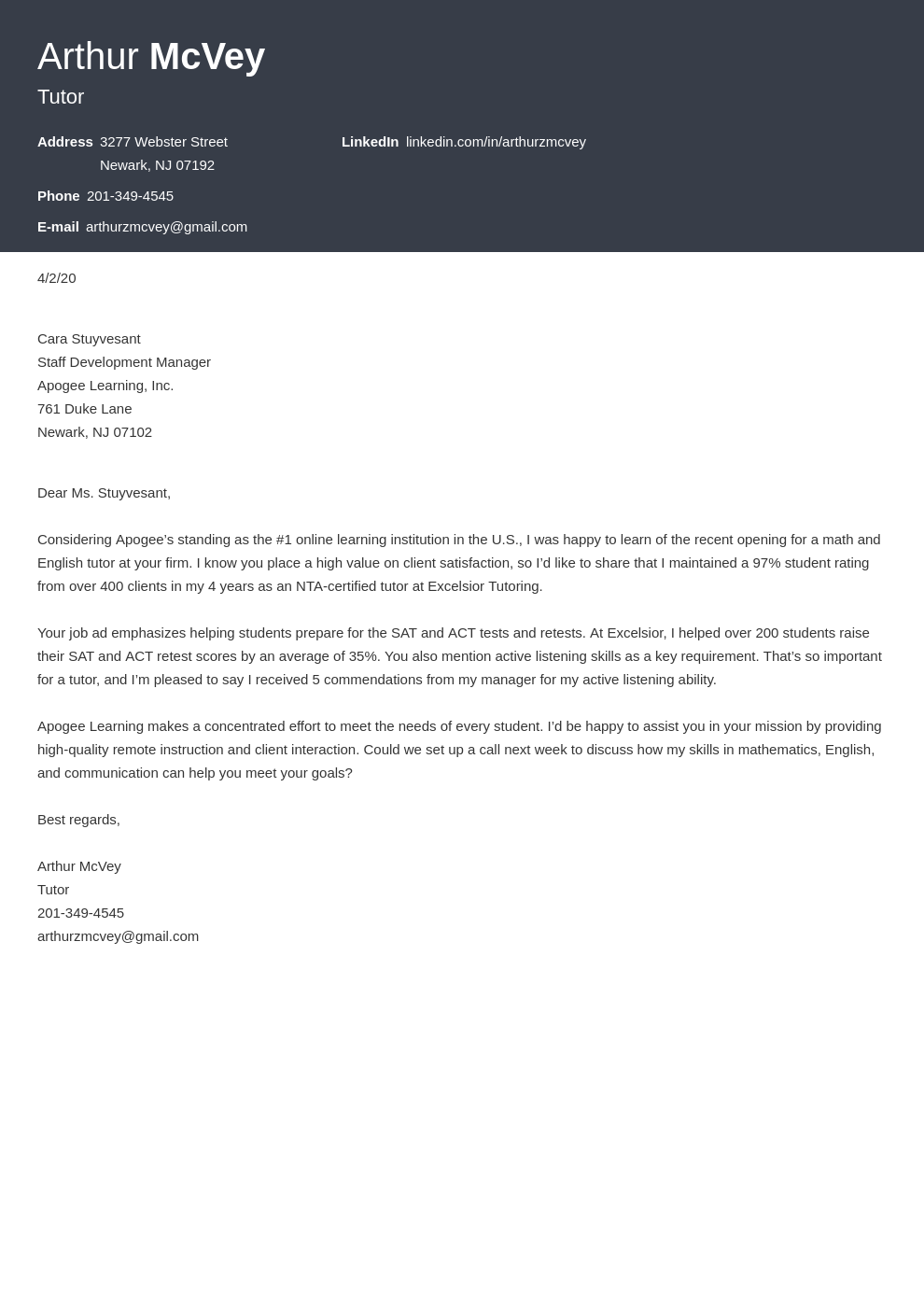
However, it is still best practice to format your cover letter like a business letter. With the rise of email as the primary way to communicate, the art of the business letter has gone by the wayside. If you are printing your cover letter, it should be on high-quality paper and kept in a folder to avoid any crumpling or staining of the page. Content should be left-justified and double-spaced for readability. You can opt to use bullet points or paragraphs, but be thorough, succinct, and easily readable.ĭo not use small or outlandish fonts. If your cover letter is a physical letter and not an email, it should not exceed one page. An employer will be able to tell if you are sending out form letters without any personalization and it will be perceived as a lack of interest in the company. Make sure you are addressing your letter to the right person in the right company.Ĭraft the entire letter to be customized to the position that you want. However, a well-crafted application, complete with a stellar resume and excellent cover letter, will bring you one step closer to landing a job and being able to quit the job search for good.įor this reason, do your research and be thorough. Job searching is a full-time job and applications are often very time consuming and sometimes frustrating. If you are unemployed, there’s a good chance you are applying to many jobs at once and may feel like speeding up the process any way you can. Other best practices for formatting include: Revising Your Cover Letter for Each Position Misuse of common terms, bad grammar, and spelling errors are a few of the red flags that can take you out of the running for a job immediately. This is very helpful because it gives you an idea of what specific points to hit.įor instance, if a job description mentions being detail-oriented and experienced in managing projects, you could integrate this into your cover letter by saying something similar to:įormatting is another area where employers vet potential candidates. The job description will very often include bullet points that outline exactly what the employer is looking for. Not only will it seem like you don’t have an authentic interest in the company, but you’re missing an opportunity to show exactly how well suited you are for the job. Avoid using “me” and “I” too often, instead opting for more inclusive words that describe how you hope to help them get the results they are after. Though your cover letter is about your work history, use language that makes it clear your goal is to fulfill the needs of the company. Keep your individual situation in mind! Make It About Them
HOW TO WRITE A COVER LETTER HOW TO
This is why any advice online about a singular approach on how to write a cover letter is misguided. A more laid-back, fun-loving company may be turned off by a cover letter that is too formal or stiff while hiring managers in a more corporate setting would likely not look favorably on a more relaxed manner of presenting yourself. Match the tone of your letter to that of the company. Go to their website and social media pages to get an overall feel for the kind of environment you will be working in and if you will be a good fit. It is usually apparent from the job description of what sort of workplace culture a company has. Being able to articulate your abilities well is a huge advantage in the job search process. While reading this list, you likely had associations with strength and leadership. This can be a bit challenging at times, but finding an appropriate synonym makes all the difference in the strength of your overall application. In cover letters as well as resumes, avoid using the same word over and over.

Using passive language can make you sound unsure of your abilities and foundationally insecure two things you don’t want included in your cover letter. Power words are action words that evoke a strong sense of competency. To have a strong cover letter, keep these things in mind: Use “Power Words”

They will want to read your resume and, even better, call you in for an interview to talk in person. It is a brief, succinct overview of your work history, as well as a specific account of how your skillset and experience directly relate to the job you are applying for.Īt its best, a cover letter will leave the hiring manager wanting more. A cover letter is your pitch to the company about why this job should be yours (much like the interview question “Why should we hire you?”).


 0 kommentar(er)
0 kommentar(er)
